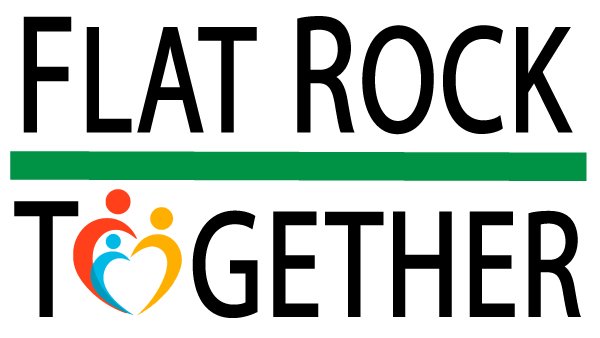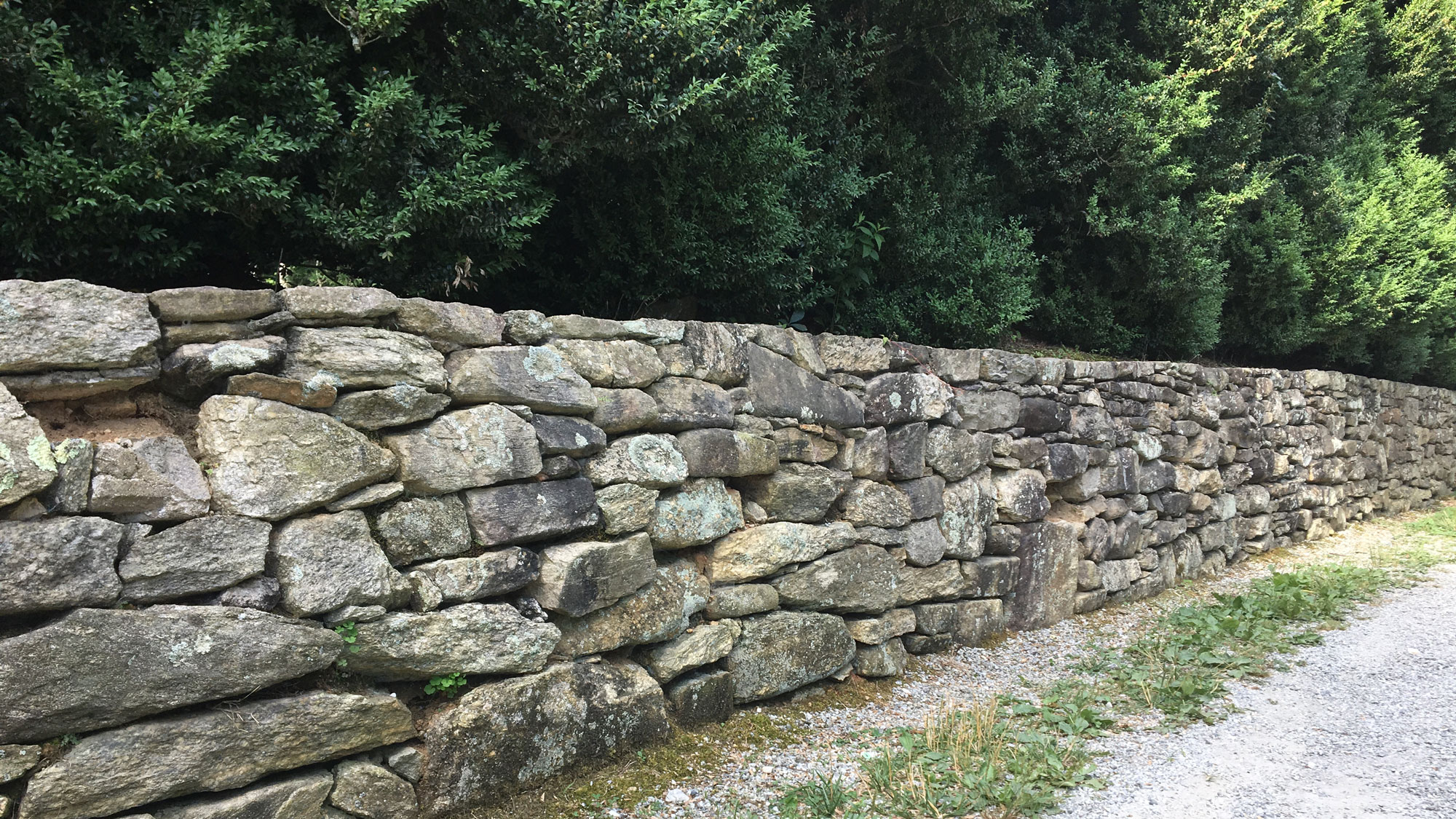Tracing Their Roots
/As a child, Flat Rock resident Denise Cumbee Long heard from her father that she was a descendant of Scottish ancestors bearing the surname MacCumbee which later was shortened and altered to her maiden name of Cumbee. Intrigued by the family lore, Denise decided to trace her roots back to her Scottish ancestors. Her path to Scotland, however, took a very unexpected turn southward as Denise ultimately traced her paternal ancestry not to Scotland but to West Africa in the 1600s.
—-
The Board for GSFR. (L-r) Mary Bouchard, Bonnie Mangold, Nancy Benyon, Debbie Burke, Karen Gerni, and Anne Hobbs.
Denise told her fascinating story to the Genealogy Society at Flat Rock earlier this month. GSFR was first organized in 2017 by Bonnie Mangold who had recently moved to Flat Rock and wanted to replicate a very active genealogy group in which she had been a member in New Jersey.
At the time, the group consisted of residents of Kenmure in Flat Rock who found each other through the neighborhood newsletter. The structure was informal and meetings allowed individuals with a common interest to share their findings and the resources they had discovered while researching their family origin stories.
The pandemic, however, interrupted the development of the nascent group and the organization fell dormant until the fall of 2022. At that time, Nancy Benyon helped Bonnie reconstitute the organization and together with a new board, they outlined the objectives of GSFR, created a new logo, and organized the initial meetings with speakers.
A board was convened consisting of Bonnie, Nancy, Mary Bouchard, Karen Gerni, Anne Hobbs, and Debbie Burke. As part of creating a more formal structure, the board developed three objective statements for GSFR:
To learn and share techniques and skills about genealogy/ family history research
To meet the needs of members by having relevant programs as well as opportunities for back-and-forth dialogue and lively discussion among members
To provide an avenue for collegial support relative to research problems and successes.
—-
Denise Cumbee Long’s great-Grandfather’s family, Ca 1906. Kenneth Cumbee is front row 2nd from left. Denise’s grandfather, Gilford, is seated on the far right of the front Row.
As a result of her research, Denise convinced her father to take a DNA test. Test results indicated he had a Y Haplogroup of B, one of the most ancient Haplogroups from Sub-Saharan Africa. “Dad really wanted to have that Scottish connection”, said Denise, “and he even tried to research the McCombie clan when he was in St. Andrews studying for his Ph.D. But, the Scottish ancestry was definitely not in his paternal line.”
Denise’s father passed along an old photograph of her great-grandfather Kenneth and her grandfather Gilford Cumbee circa 1906. The appearance of her ancestors struck her as decidedly “un-Scottish”. The family had olive complexions and dark hair. One of the women in the back row, her great-aunt Leslie Cumbee, appeared to have an especially ambiguous racial identity.
—-
Although based out of Flat Rock, the new Genealogy Society is open to anyone in the area who is interested in genealogy. “We are the Genealogy Society AT Flat Rock – not OF Flat Rock,” Nancy explains. “We welcome anyone who wants to share their stories or learn more about genealogy research.” The group welcomes members of all levels of interest and experience – from those just starting out in their research to individuals who have been researching their family for years.
Nancy believes that GSFR is a little unique in that most of its members have arrived here from different parts of the country and they are not doing local Henderson County research as they explore their origin stories.
—-
Sworn affidavit testifying that Denise’s ancestor, Alley Cumbo, was “a white woman.”
Denise and one of her cousins began looking at census records and discovered that when her great-grandfather Kenneth was younger, he and his family members were all listed as “mulatto”, as was Kenneth’s father Isom, and his family. Isom was born in 1802 and Kenneth in 1854. During that time, “mulatto” was a term used to designate anyone who appeared to have mixed-race ancestry. The census records also revealed that her great-grandfather Kenneth had indeed changed his last name. But it was not originally “MacCumbee” but rather “Cumbo.”
Apparently, a mixed racial identity went back several generations. An 1804 affidavit was uncovered stating that Denise’s fourth great-grandmother Alley Cumbo was “a White woman” and “was always acknowledged and received as such” by her neighbors. Clearly, there was some question as to her race and that racial ambiguity continued through successive generations. ‘I think my great-grandfather wanted to change his Cumbo name to Cumbee in order to pass as White,” commented Denise. And indeed, in later years, Kenneth and his descendants were all listed as white on census records beginning in the late 1800s.
—-
Denise Cumbee Long speaking at the May meeting of the Genealogy Society at Flat Rock
When asked what motivated their interest in genealogy, GSFR members’ stories are as diverse as their family origins. For Anne Hobbs, her interest was sparked by the discovery of a pamphlet created by her father’s third cousin that sketched out her family tree. “It mentioned that we had a Revolutionary War ancestor and I wanted to learn more about that.” For Debbie Burke, she was motivated to help her mother prove something that was, up to that point, unsubstantiated family lore. “I did it to make my mom happy. She wanted to prove that we had black ancestors. I was able to document that for her.”
For Karen Gerni, family research helped create a sense of gratitude. “Genealogy research gives me an appreciation for all that our ancestors lived through. Life was not easy for most of them. I feel a lot of gratitude for all they sacrificed and overcame for future generations.” She adds that tracing family back to the villages or towns they left to come to the New World is the Holy Grail of her research. “It’s fascinating to understand where they came from. What was going on historically at that time that would make them think it was worth the risk of leaving for a new life in a new country.”
Nancy thinks that many people have a basic understanding of their family tree but don’t know much about the details of the lives of their ancestors. Genealogy research helps fill in the gaps. “You start out with names and dates and then you start hearing stories. Then you want to know more about the details of their lives. To paint a picture of the person.”
To that point, Bonnie believes that knowing their family history can build resiliency in subsequent generations. “There’s research that indicates that kids benefit from knowing their ancestry and knowing the stories about the trials and tribulations of their ancestors. To know that somebody in your family overcame obstacles and that it wasn't the end of them. Those stories help build resilience in the kids.”
—-
Denise Cumbee Long with her cousin, Andre Kearns, who helped her research her family tree.
Eventually, Denise’s family research connected her with Andre Kearns in Washington, DC. He had done extensive research on his Cumbo ancestry and the documentation he shared with Denise pointed to a family history that led to Africa.
Tracing their roots back to the mid-1600s, Andre and Denise discovered a common ancestor by the name of Emanuel Cumbo. Emanual was an exceedingly rare free man of color who lived in colonial Virginia. Records show that he served as an indentured servant for a required term of 21 years and then was granted his freedom and a parcel of 50 acres of land in 1664. But who were his parents?
In 1619 and again in 1628, three Portuguese ships arrived in Jamestown with a human cargo of Africans forcibly taken from an area of Africa that is present-day Angola. Emanuel’s parents were likely brought to Jamestown on one of those ships. Cumbo is the name of a town in Angola, and it is also the last name of slaves listed on the manifests of subsequent slave boats.
With extensive research and the help of her Cumbo cousin Andre, Denise Cumbee Long discovered that she is the 7th-great-grandaughter of one of the first Africans brought to the new world.
—-
DEnise’s Great Aunt Leslie Cumbee
Genealogical research certainly can lead to unexpected results. For Mary Bouchard, DNA testing revealed that the father who raised her was not her biological father. “I just found out two years ago.” She also discovered that instead of being of predominantly Portuguese descent, she has more Irish ancestry. Her current research is for both herself and her extended family. “I just want to know. I'd like to know for my children and my grandchildren. So we can know our true heritage.”
Nancy adds that a lot of our understanding of our ancestry is family-lore without documentation to substantiate the claims. “People will believe they are descendants of George Washington or cousins of Matthew McConaughey,” she says with a laugh. “There might be a few who really are, but that’s not often been our experience.” She adds that often what is found in family trees posted online is undocumented and should be considered with a healthy degree of skepticism. Groups like GSFR, she adds, can help the relatively new genealogists avoid mistakes that take their research down the wrong path.
—-
Part of the Cumbo Family reunion held in Williamsburg, VA in 2015. Andre Kearns is far left and DEnise is 2nd from Right.
Denise was able to meet hundreds of cousins who celebrated a Cumbo Family reunion in Williamsburg in 2016. “We all come from someplace else,” says Denise. “I love knowing that this web of relationships connects so many of us, across different races and places. And we are grateful for the knowledge that we share a common ancestor whose perseverance and resilience helped him survive and thrive in a strange new land.”
—-
The current members of GSFR are relatively well established in their genealogy skills, but they encourage anyone who has an interest to get started – and they are able and willing to help. “I'm a teacher. It just makes me feel good to be able to help somebody learn a little bit more about their heritage,” Nancy explains.
And for those who have already done extensive research, Anne believes the group is still an excellent resource. “I have learned something from each person in the group. We all hit brick walls in our research and need help to try to think through how to find an answer.” Anne also believes that whatever you discover – even the occasional skeleton in the closet – should be embraced. “After almost 30 years of doing this work, I tell people that it does not matter what your family background is. Learn it. Appreciate the culture. And celebrate whatever your family history is.”
—
The Genealogy Society at Flat Rock is actively seeking new members as well as individuals with interesting genealogy stories to speak at their meetings. Interested persons should contact Nancy Benyon at snmma@aol.com, Bonnie Mangold at bonnie1man@mac.com, or Karen Gerni at laurelwoodnc@gmail.com










